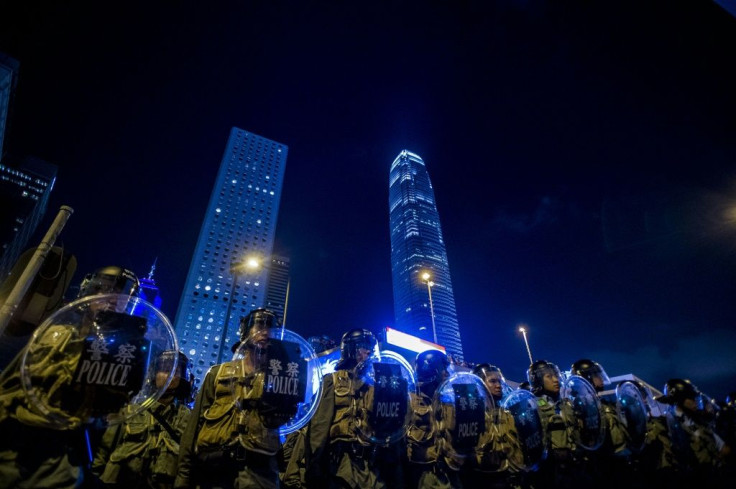Hong Kong stocks rally on extradition bill hopes

Property firms led a surge in Hong Kong on Wednesday as reports said the government was planning to agree to a key demand of campaigners after months of sometimes violent protests that have hammered the economy and the financial hub's image.
Multiple news outlets said Chief Executive Carrie Lam was planning to fully withdraw a loathed extradition bill, which would mark a major U-turn.
The bill had been the initial spark for demonstrations at the start of June and while markets at first took them in their stride, investors have grown increasingly concerned about a pick-up in violence that has raised fears China may intervene.
Hong Kong's business community widely disliked the extradition proposal and looked on aghast as the usually stable city became mired in street battles between riot police and a minority of hardcore protesters.
The standoff has weighed on the city's economy as well as the stock market, with a closely watched index of manufacturing activity showing the sector continued to contract in August and at a faster rate than the month before.
A pro-establishment lawmaker who asked to remain anonymous told AFP their camp was being summoned to meet Lam on Wednesday afternoon ahead of an expected major announcement.
Several outlets said the city's leader would announce a full withdrawal.
"This gesture to formally withdraw is a bid to cool down the atmosphere," the South China Morning Post quoted one source as saying.
The news sent the Hang Seng Index -- which has fallen more than 10 percent since the protests started -- soaring and it ended the day 3.90 percent, or 995.38 points, higher at 26,523.23.
"The withdrawal is a sign of an inflection point in the 13-week long crisis," said Justin Tang, head of Asian research at United First Partners.
"Retail and property stock investors are signalling their optimism and putting their money where it matters."
Property sector surges
The hugely influential property sector -- which had lost about a fifth of its value since April -- ballooned with the HSI Property Index jumping more than seven percent after the reports.
New World Development led the rally in property firms, soaring more than 10 percent, while Henderson Land jumped 8.71 percent and Sino Land gained 7.78 percent.
Macau casino operators, who have suffered losses on concerns about a drop in tourist numbers, were also well up with Galaxy Entertainment piling on almost six percent and Sands China 4.84 percent higher.
Market heavyweight Tencent rose 3.65 percent and insurer AIA rallied almost six percent with banking giant HSBC up 3,49 percent and Cathay Pacific 7.21 percent higher.
MTR Corp, which runs the city's subway system which has seen a high proportion of the violence, jumped 6.40 percent.
While Lam's decision would be seen as a concession to the protesters, there are still several demands that appear not to be met.
These include an independent inquiry into alleged police brutality, an amnesty for those arrested and calls for Hong Kongers to be able to directly elect their leaders -- a major red line for Beijing.
"If the reality turns out to be a let-down, the disappointment may suppress shares even further," warned Gary Ching at Guosen Securities.
"It's unlikely that retracting the bill will be enough to placate the unrest -- this concession by the government may instead motivate protesters to do more to get their other demands met. Even if the bill is retracted as the market expects, we are a long way from wrapping this up."
In mainland China, the benchmark Shanghai Composite Index rose 0.93 percent, or 27.26 points, to 2,957.41, while the Shenzhen Composite Index, which tracks stocks on China's second exchange, added 0.67 percent, or 10.84 points, to 1,636.40.
- Bloomberg News contributed to this story -
© Copyright AFP {{Year}}. All rights reserved.





















